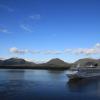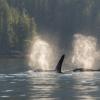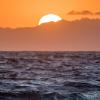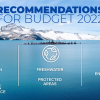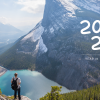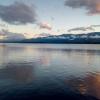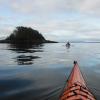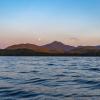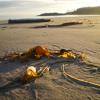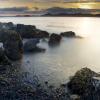After a two-year hiatus because of COVID-19, cruise ships are back on the west coast, plying the waters and sensitive ecosystems of British Columbia, primarily travelling to and from Alaska.
Environmental Law Alert Blog
Through our Environmental Law Alert blog, West Coast keeps you up to date on the latest developments and issues in environmental law. This includes:
- proposed changes to the law that will weaken, or strengthen, environmental protection;
- stories and situations where existing environmental laws are failing to protect the environment; and
- emerging legal strategies that could be used to protect our environment.
If you have an environmental story that we should hear about, please e-mail Andrew Gage. We welcome your comments on any of the posts to this blog – but please keep in mind our policies on comments.
This blog is the second in a two-part series: Part 1 reviews the latest UN Intergovernmental Panel on Climate Change (IPCC) report from a marine perspective; and Part 2 outlines solutions to the climate impacts the ocean is facing.
This blog is the first in a two-part series: Part 1 reviews the latest UN Intergovernmental Panel on Climate Change (IPCC) report from a marine perspective; and Part 2 outlines solutions to the climate impacts the ocean is facing.
The federal government is preparing to introduce its 2022 budget, considering funding decisions that will have major implications on Canada’s ability to address key environmental and social justice priorities in the coming years.
The start of a New Year is a time for reflection as much as it is a time for celebration.
Shortly after the federal election, we reviewed the Liberty Party of Canada’s election platform. This post follows that post by analyzing the federal mandate letters, released on December 16, 2021.
As we live with increasingly frequent and severe impacts from climate change, it is important that we think about protecting ecosystems to buffer against climate impacts, and safeguarding nature to ensure that it continues to support human economies.
As the recent COP26 UN climate negotiations in Glasgow drew to a close, we were heartened to hear new announcements made there on protecting marine spaces. Colombia, Costa Rica, Ecuador and Panama announced a new “Mega-MPA” spanning from the Galápagos to the Pacific coast of Central America, protecting some of the most productive fisheries in the world.
With the COP26 UN climate negotiations underway until the end of this week, the world is watching political leaders to see how they will work together on reducing emissions, phasing out fossil fuels and decarbonizing the economy, and how they will support the Global South in this transition.
West Coast has reviewed the party’s ocean commitments in its election platform and assessed how they measure against the work that needs to be done. We identified a few glaring holes, many important and encouraging commitments, and several high-level statements whose effectiveness will depend on the details.

